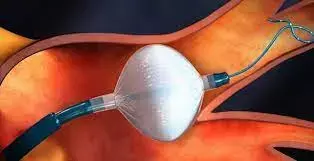- Home
- Medical news & Guidelines
- Anesthesiology
- Cardiology and CTVS
- Critical Care
- Dentistry
- Dermatology
- Diabetes and Endocrinology
- ENT
- Gastroenterology
- Medicine
- Nephrology
- Neurology
- Obstretics-Gynaecology
- Oncology
- Ophthalmology
- Orthopaedics
- Pediatrics-Neonatology
- Psychiatry
- Pulmonology
- Radiology
- Surgery
- Urology
- Laboratory Medicine
- Diet
- Nursing
- Paramedical
- Physiotherapy
- Health news
- Fact Check
- Bone Health Fact Check
- Brain Health Fact Check
- Cancer Related Fact Check
- Child Care Fact Check
- Dental and oral health fact check
- Diabetes and metabolic health fact check
- Diet and Nutrition Fact Check
- Eye and ENT Care Fact Check
- Fitness fact check
- Gut health fact check
- Heart health fact check
- Kidney health fact check
- Medical education fact check
- Men's health fact check
- Respiratory fact check
- Skin and hair care fact check
- Vaccine and Immunization fact check
- Women's health fact check
- AYUSH
- State News
- Andaman and Nicobar Islands
- Andhra Pradesh
- Arunachal Pradesh
- Assam
- Bihar
- Chandigarh
- Chattisgarh
- Dadra and Nagar Haveli
- Daman and Diu
- Delhi
- Goa
- Gujarat
- Haryana
- Himachal Pradesh
- Jammu & Kashmir
- Jharkhand
- Karnataka
- Kerala
- Ladakh
- Lakshadweep
- Madhya Pradesh
- Maharashtra
- Manipur
- Meghalaya
- Mizoram
- Nagaland
- Odisha
- Puducherry
- Punjab
- Rajasthan
- Sikkim
- Tamil Nadu
- Telangana
- Tripura
- Uttar Pradesh
- Uttrakhand
- West Bengal
- Medical Education
- Industry
Cryoballoon AF ablation safe and efficacious among patients with HFrEF

Cryoballoon atrial fibrillation ablation is safe and efficacious among patients with Heart Failure with reduced ejection fraction suggests a new study published in the Indian Pacing and Electrophysiology Journal.
While atrial fibrillation (AF) ablation has proven beneficial for heart failure (HF) patients, most reports were performed with radiofrequency ablation. They aimed to evaluate the efficacy and safety of cryoballoon atrial fibrillation ablation in patients with Heart Failure with reduced ejection fraction. They comprehensively searched the databases of MEDLINE, EMBASE, and Cochrane database from inception to December 2022. Studies that reported the outcomes of freedom from atrial arrhythmia, complications, NYHA functional class (NYHA FC), and left ventricular ejection fraction (LVEF) after Cryoballoon atrial fibrillation ablation in heart failure patients were included. Data from each study were combined with a random-effects model. Result: A total of 9 studies observational studies with 1414 heart failure patients were included. Five studies had only heart failure with reduced ejection fraction (HFrEF), 1 study with HF with preserved ejection fraction (HFpEF), and others with mixed heart failure types. Freedom from AA in HFrEF at 12 months was 64% (95% CI 56–71%, I2 58%). There was a significant improvement of LVEF in these patients with a standard mean difference of 13% (95% CI 8.6–17.5%, I2 99% P < 0.001. The complication rate in Heart Failure with reduced ejection fraction group was 6% (95% CI 4–10%, I2 0%). The risk of recurrence of atrial arrhythmia was not significantly different between heart failure and no heart failure patients. Cryoballoon atrial fibrillation ablation is effective in HFrEF patients comparable to radiofrequency ablation. The complication rate was low.
Reference:
Nithi Tokavanich, Witina Techasatian, Narut Prasitlumkum, Wisit Cheungpasitporn, Leenhapong Navaravong, Krit Jongarangsin, Ronpichai Chokesuwattanaskul,
The efficacy and safety of cryoballoon atrial fibrillation ablation in patients with heart failure: A systematic review and meta-analysis. Indian Pacing and Electrophysiology Journal,
2024, ISSN 0972-6292. https://doi.org/10.1016/j.ipej.2024.01.001.
(https://www.sciencedirect.com/science/article/pii/S0972629224000019)
Keywords:
Cryoballoon AF, Cryoballoon ablation, patients with HFrEF, Indian Pacing and Electrophysiology Journal, Cryoballoon ablation; Heart failure; Cryoablation; Atrial fibrillation, Nithi Tokavanich, Witina Techasatian, Narut Prasitlumkum, Wisit Cheungpasitporn, Leenhapong Navaravong, Krit Jongarangsin, Ronpichai Chokesuwattanaskul
Dr. Shravani Dali has completed her BDS from Pravara institute of medical sciences, loni. Following which she extensively worked in the healthcare sector for 2+ years. She has been actively involved in writing blogs in field of health and wellness. Currently she is pursuing her Masters of public health-health administration from Tata institute of social sciences. She can be contacted at editorial@medicaldialogues.in.
Dr Kamal Kant Kohli-MBBS, DTCD- a chest specialist with more than 30 years of practice and a flair for writing clinical articles, Dr Kamal Kant Kohli joined Medical Dialogues as a Chief Editor of Medical News. Besides writing articles, as an editor, he proofreads and verifies all the medical content published on Medical Dialogues including those coming from journals, studies,medical conferences,guidelines etc. Email: drkohli@medicaldialogues.in. Contact no. 011-43720751


